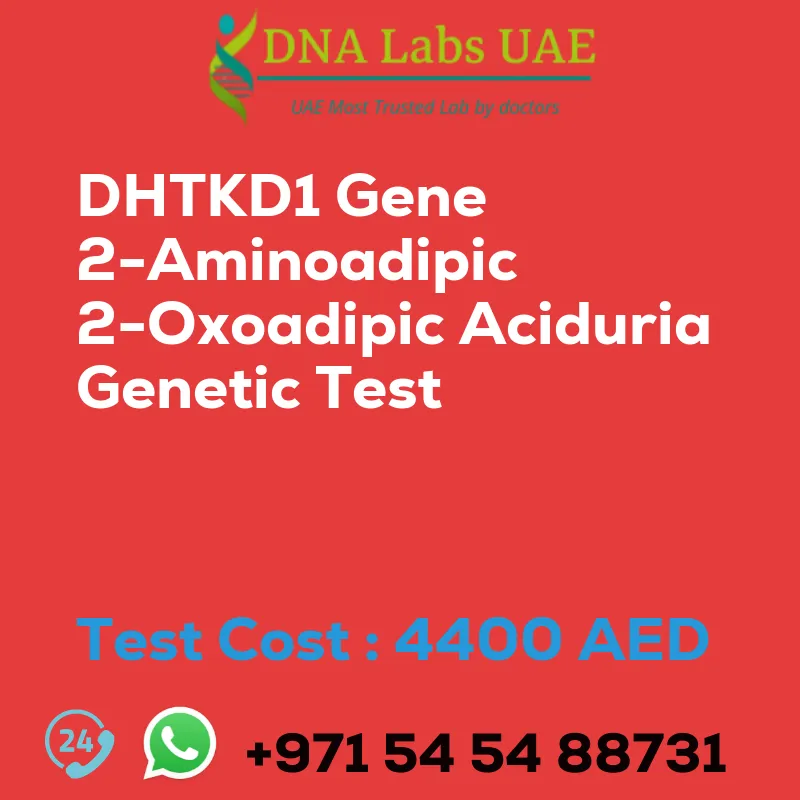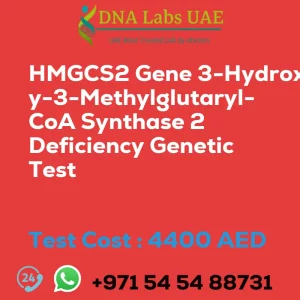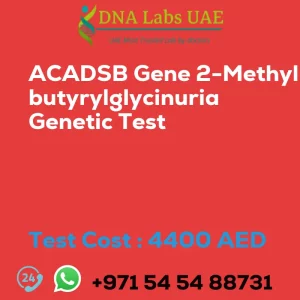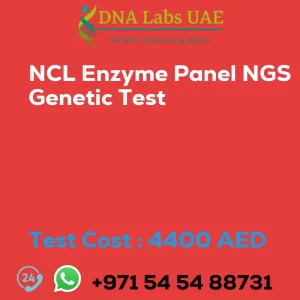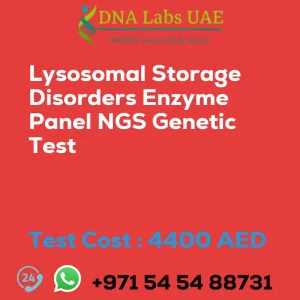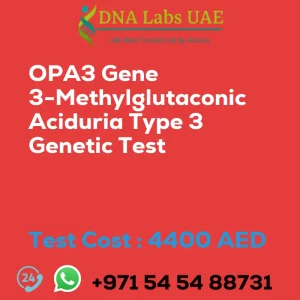DHTKD1 Gene 2-aminoadipic 2-oxoadipic aciduria Genetic Test
At DNA Labs UAE, we offer the DHTKD1 Gene 2-aminoadipic 2-oxoadipic aciduria Genetic Test at a cost of AED 4400.0. This test is used to diagnose and identify mutations in the DHTKD1 gene that may be causing 2-aminoadipic 2-oxoadipic aciduria, a rare genetic disorder.
Test Details
The DHTKD1 gene is responsible for producing an enzyme called dihydrolipoamide dehydrogenase (DLD), which plays a crucial role in energy production within cells, specifically in the mitochondria. Mutations in the DHTKD1 gene can lead to 2-aminoadipic 2-oxoadipic aciduria, a condition that affects the breakdown of lysine, resulting in the accumulation of 2-aminoadipic acid and 2-oxoadipic acid in the body.
Symptoms and Diagnosis
2-aminoadipic 2-oxoadipic aciduria can cause various symptoms including developmental delay, intellectual disability, seizures, movement disorders, and muscle weakness. To diagnose this condition, we use NGS (Next-Generation Sequencing) technology, which allows us to analyze multiple genes simultaneously. This type of genetic testing can help with accurate diagnosis, genetic counseling, and potentially guide treatment options for affected individuals and their families.
Test Components and Sample Condition
The DHTKD1 Gene 2-aminoadipic 2-oxoadipic aciduria Genetic Test is performed using a blood sample, extracted DNA, or one drop of blood on an FTA card. The sample condition ensures accurate and reliable results.
Report Delivery and Test Department
After the sample is collected, the report will be delivered within 3 to 4 weeks. The test is conducted in our Genetics department by experienced professionals and is overseen by a General Physician.
Pre Test Information
Before undergoing the DHTKD1 Gene 2-aminoadipic 2-oxoadipic aciduria Genetic Test, it is important to provide the clinical history of the patient. Additionally, a Genetic Counselling session will be conducted to draw a pedigree chart of family members affected by 2-aminoadipic 2-oxoadipic aciduria. This information aids in accurate diagnosis and genetic counseling.
Conclusion
The DHTKD1 Gene 2-aminoadipic 2-oxoadipic aciduria Genetic Test offered by DNA Labs UAE is a valuable tool for diagnosing and understanding this rare genetic disorder. With the use of NGS technology, we can identify mutations in the DHTKD1 gene, provide accurate diagnosis, and offer appropriate treatment options for affected individuals and their families.
| Test Name | DHTKD1 Gene 2-aminoadipic 2-oxoadipic aciduria Genetic Test |
|---|---|
| Components | |
| Price | 4400.0 AED |
| Sample Condition | Blood or Extracted DNA or One drop Blood on FTA Card |
| Report Delivery | 3 to 4 Weeks |
| Method | NGS Technology |
| Test type | Metabolic Disorders |
| Doctor | General Physician |
| Test Department: | Genetics |
| Pre Test Information | Clinical History of Patient who is going for DHTKD1 Gene 2-aminoadipic 2-oxoadipic aciduria NGS Genetic DNA Test A Genetic Counselling session to draw a pedigree chart of family members affected with 2-aminoadipic 2-oxoadipic aciduria |
| Test Details |
The DHTKD1 gene is responsible for providing instructions to make an enzyme called dihydrolipoamide dehydrogenase (DLD). This enzyme plays a crucial role in energy production within cells, specifically in the mitochondria. 2-aminoadipic 2-oxoadipic aciduria is a rare genetic disorder caused by mutations in the DHTKD1 gene. This condition affects the breakdown of a specific amino acid called lysine, leading to the accumulation of 2-aminoadipic acid and 2-oxoadipic acid in the body. These accumulated acids can cause various symptoms such as developmental delay, intellectual disability, seizures, movement disorders, and muscle weakness. NGS (Next-Generation Sequencing) genetic testing is a technique used to analyze multiple genes simultaneously. In the context of DHTKD1 gene and 2-aminoadipic 2-oxoadipic aciduria, NGS genetic testing can be used to identify mutations or changes in the DHTKD1 gene that may be causing the condition. This type of testing can help with diagnosis, genetic counseling, and potentially guide treatment options for affected individuals and their families. |

